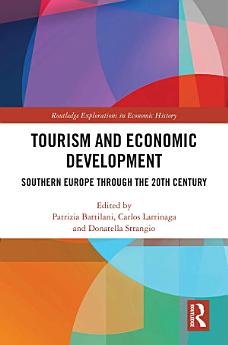Tourism and Economic Development: Southern Europe through the 20th Century
About this ebook
This edited volume analyses when, how, and why tourism gained an important role in the economy and social life of Southern Europe. It contributes to a reassessment of mass tourism focusing on two main dimensions: first, the impact on the economic development of the different southern European countries and second, the building of a new sociality focusing on the rituals and values of middle and the working class. This book adopts a comparative approach that opens with a comparison of European countries in terms of international market share and tourist products. The other chapters focus on national case studies that allow the reader to better understand not only the similarities and differences between some countries and others, but also the phenomenon as a whole. Since tourism is a transnational phenomenon, this book makes an important contribution to not only the study of tourism development and its economy but also social, impact in Southern Europe.
The book will be of great interest to readers of economic history, business history, tourism history, and European history more broadly.
About the author
Patrizia Battilani is a Full Professor in Economic History at the University of Bologna. She headed the Center for Advanced Studies in Tourism from 2018 to 2021.
Carlos Larrinaga is a Full Professor in Economic History at the University of Granada (Andalusia, Spain). His research is in the history of tourism, railways in the 19th century, and the service sector.
Donatella Strangio is a Full Professor of Economic History and Director of the Department of Methods and Models for the Economy, Territory and Finance - Sapienza University of Rome. She is currently the Rector's Delegate for Latin America for Chile and Brazil.





